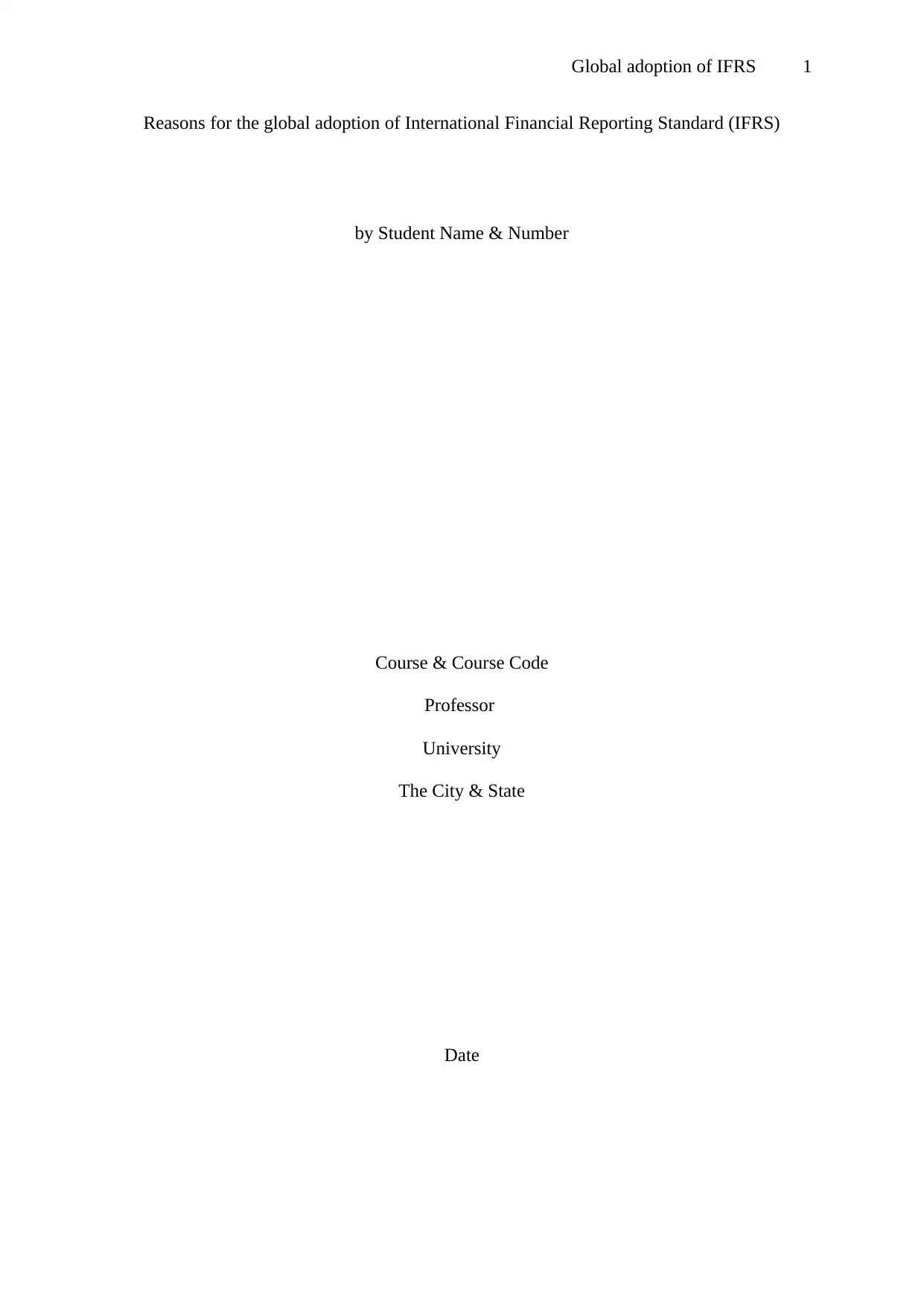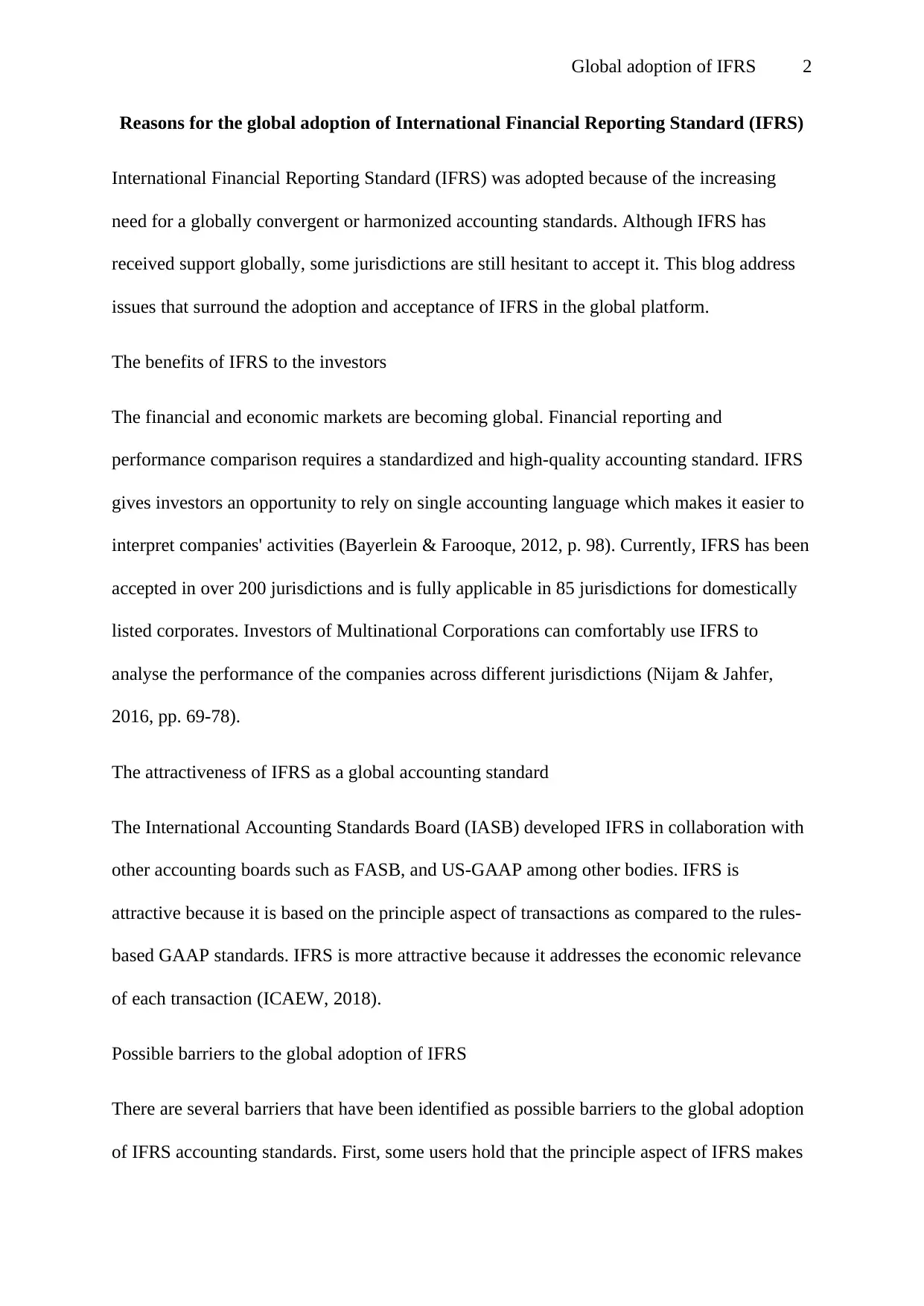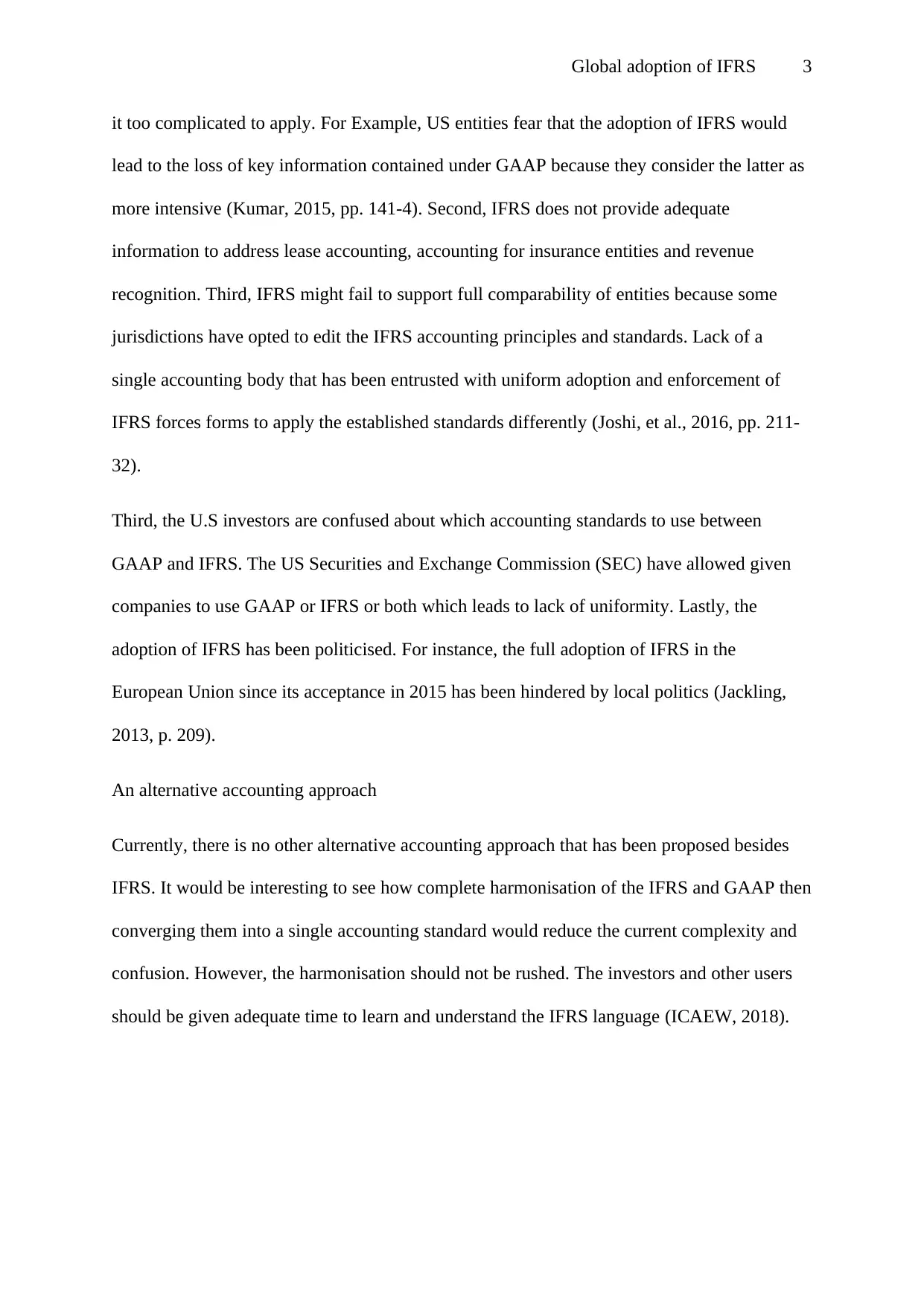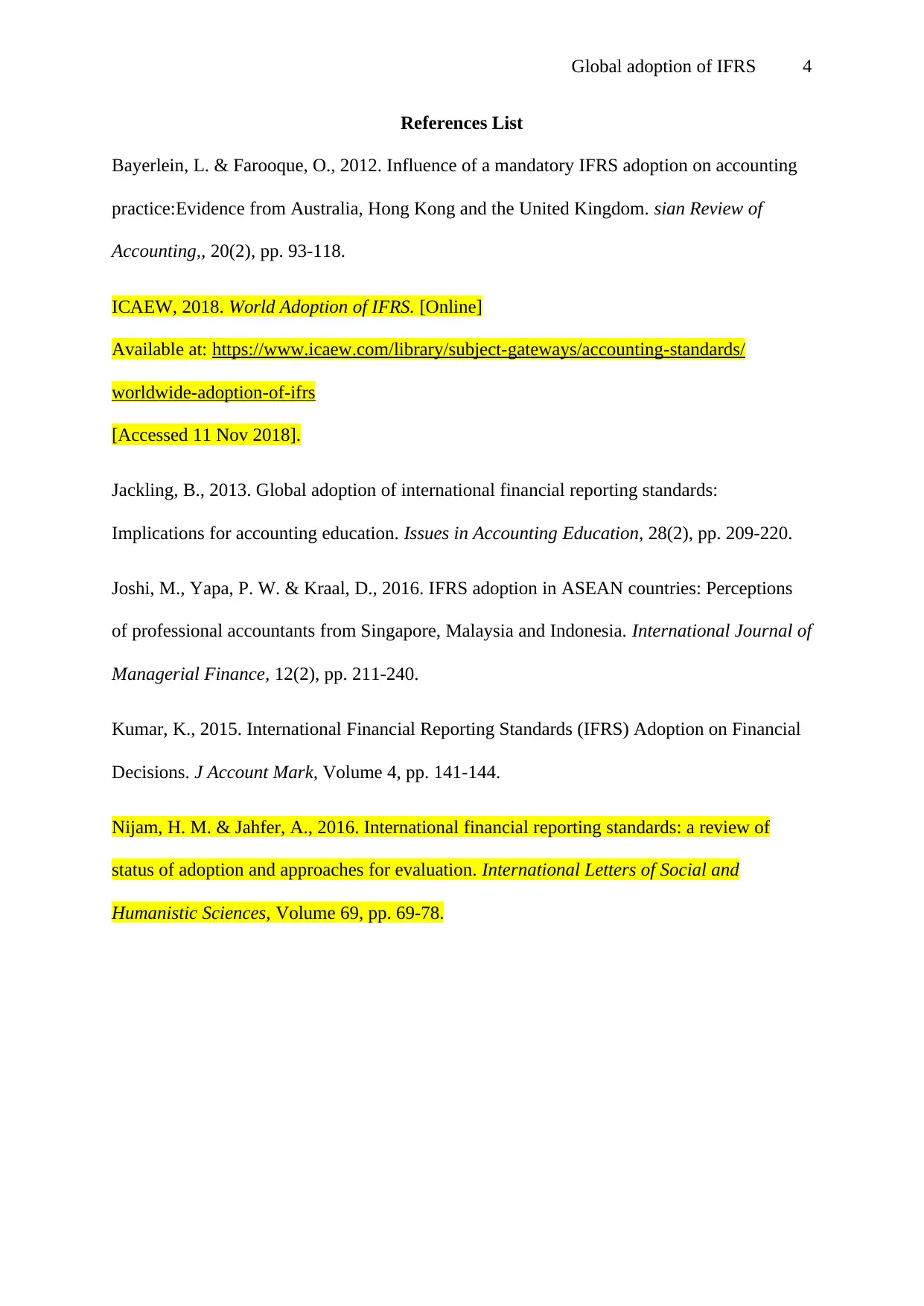Reasons for Global Adoption of IFRS: An In-depth Analysis
VerifiedAdded on 2023/05/30
|4
|867
|238
Report
AI Summary
This report examines the reasons behind the global adoption of International Financial Reporting Standards (IFRS), driven by the increasing need for harmonized accounting standards in a globalizing financial market. It highlights the benefits of IFRS for investors, such as providing a single accounting language for easier performance comparison across multinational corporations. The report also addresses the attractiveness of IFRS due to its principle-based approach compared to the rules-based GAAP standards. Furthermore, it identifies several barriers to IFRS adoption, including concerns about complexity, inadequate information in specific areas like lease accounting, and the lack of a single enforcement body leading to inconsistent application. The report concludes by noting the absence of a viable alternative accounting approach and suggests that harmonizing IFRS and GAAP could potentially reduce complexity, emphasizing the need for a gradual and well-understood transition.
1 out of 4











![[object Object]](/_next/static/media/star-bottom.7253800d.svg)